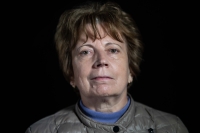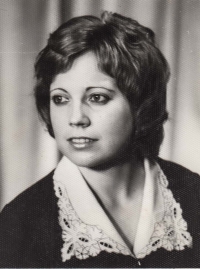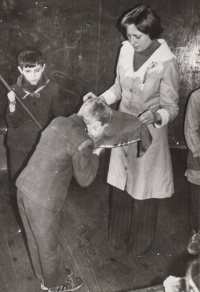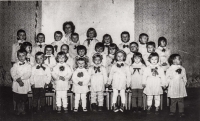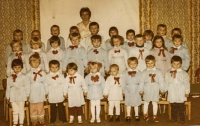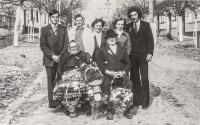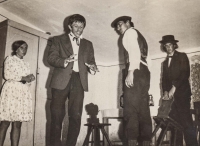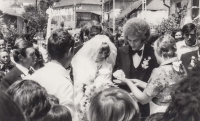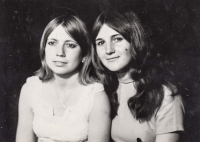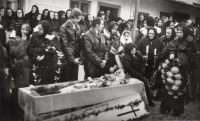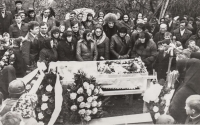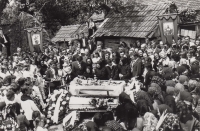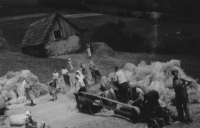The militiamen occupied some family houses in Eibentál and the deportation to Bărăgan started

Download image
Alena Gecse, née Fiklová, was born on 12 October 1957 in the Czech village of Eibentál (Eibenthal) in Romanian Banat. After the Communists took power in Romania, in June 1951, her grandparents the Fikls were deported from the village to the area called Bărăgan together with other family members. Three years later they were allowed to leave the inhospitable area, but not to return to Eibentál, and so were expelled East to Moldavia, where the witness’ grandfather died shortly thereafter. It wasn’t until the second half of the 1950s that the family was allowed to return, meanwhile their farm had been thoroughly ransacked. Her father Viktor worked as a miner in the neighbouring anthracite mines and the mother and children took care of the household and farm. This witness completed eight classes of school in Eibentál and starting in 1972 she studied at the pedagogical secondary school for Czech and Slovak teachers in the border town of Nădlac. After completing her pedagogical studies, her first job position was in Svatá Helena, where she was a teacher for 13 years. After the Romanian revolution in December of 1989, she began teaching in Moldova Nouă, where a few children from Czech or mixed families also attended, and for them she set up a Czech language club, which was subsequently extended to tutoring adults. From the 90s onwards until just recently, she lead the Czech children’s choir called Moldavská holubička (Moldova dove). This witness spent a total of 41 years as a teacher and at the time of recording was living in Caransebeș (October 2021).
